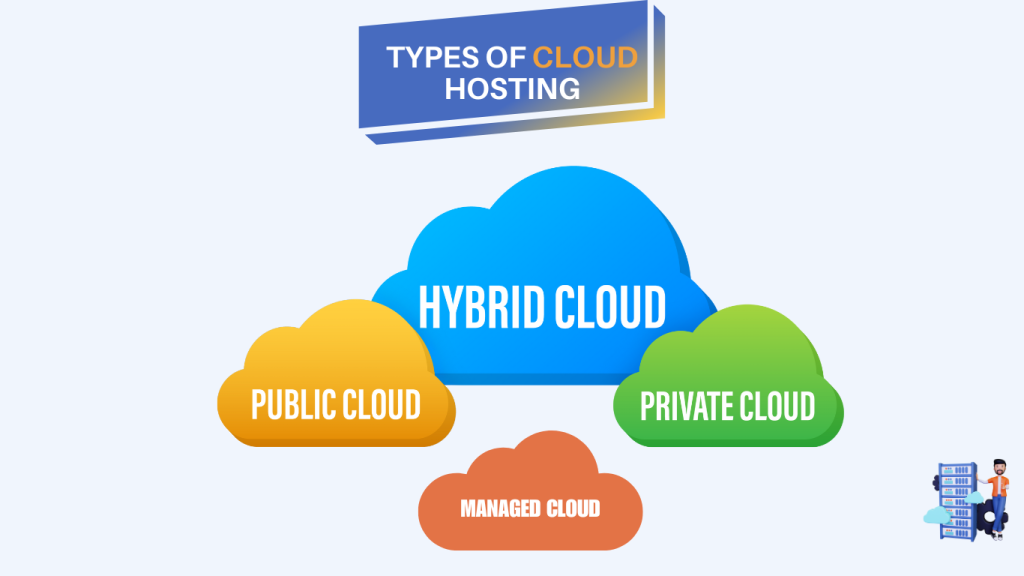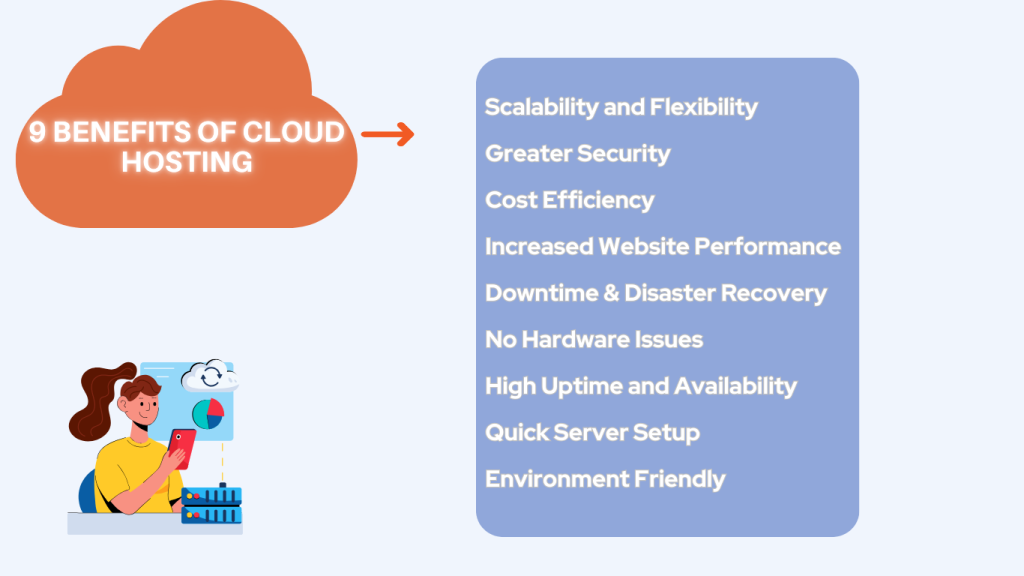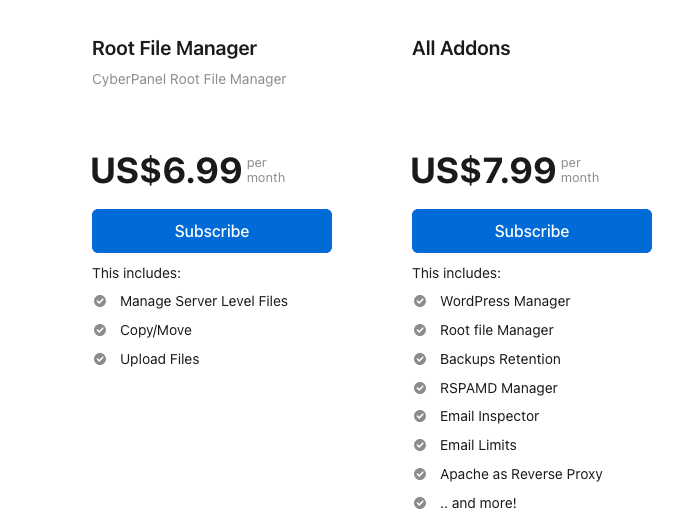Who doesn’t hate slow-running websites? Cloud hosting being the subset of of the broader concept of cloud computing, is the best solution for faster load times and avoiding frustration, it spreads resources across several servers, and you can ensure that your website remains scalable and effective at an acceptable cost, even during periods of peak resource demand.
In this article, we’re talking about cloud hosting, how it works, the benefits of cloud hosting for organizations, how they implement it, and what challenges they face.
Cloud Hosting Explained
Simply put cloud hosting is an IaaS( Infrastructure as a service) offering that uses virtual servers in the cloud to run your website or application mostly hosted on a network( like the internet). Applications were traditionally hosted on actual servers that companies either rented from hosting companies or bought in on-site data centers and can be accessed by anyone if they have the authority.
Paying a cloud provider to host your application across a network of real and virtual servers spread across many geographical locations provides quicker solutions.
How Does Cloud Hosting Work?
Here’s how cloud hosting works:
- Cloud hosting works through virtualization, Global access to content storage is made possible by the virtual layer created by a virtual private server, which can be replicated on other servers within the cloud computing network.
- Memory, storage, and CPU are distributed from a set pool of resources to each virtual machine (VM).
- Resource isolation, which means each virtual machine (VM) runs separately on a physical server, ensuring no interference with other virtual machines, and allowing various servers and apps to operate without compatibility issues.
- A virtual machine (VM) can use extra resources from the pool to balance performance when it encounters increased traffic.
- Cloud hosting companies rent virtual servers to clients according to their requirements.
- With this incredibly versatile technology, businesses may easily add new virtual machines (VMs), increase the processing capability of an already existing one, or adjust IT infrastructure as needed.
Types of Cloud Hosting
Before moving on to the benefits of cloud hosting, let’s take a look at the 4 main types of cloud hosting to help you understand this technology better.
Get exclusive access to all things tech-savvy, and be the first to receive
the latest updates directly in your inbox.

Each of these involves different levels of input from your business and distributes resources in different ways.
What Are The Benefits of Cloud Hosting?
Your company can access resources with flexibility and low upfront costs by utilizing cloud hosting. For businesses that collaborate with a cloud partner, this approach offers numerous advantages.

Let’s discuss each of the 9 key benefits of cloud hosting in detail:
- Scalability and Flexibility
- Greater Security
- Cost Efficiency ( Pay-as-you-go)
- Increased Website Performance
- Downtime & Disaster Recovery
- No Hardware Issues
- High Uptime and Availability
- Quick Server Setup
- Environment Friendly
1. Scalability and Flexibility
Cloud hosting may be effortlessly scalable to meet the demands of a website or application by generating new servers throughout the cloud network when usage increases because it does not rely on a single server to store and distribute content. Cloud Hosting offers flexibility in the IT infrastructure by quickly modifying it to account for workload fluctuations and expansion.
2. Greater Security
Another one of the key benefits of cloud hosting is greater security. Cloud providers give all of their clients high-level security and make significant investments in reliable security solutions. The supplier keeps their systems updated with the newest security frameworks by restoring and updating them.
They can provide a variety of disaster recovery alternatives because of their focus on security. Reliable cloud hosting providers offer extra data backup and recovery procedures that you can employ as an optional feature.
3. Cost Efficiency ( Pay-as-you-go Model)
The advantages of cloud hosting include cost efficiency. With cloud hosting, customers only pay for the resources they use on a monthly or hourly basis, as opposed to traditional hosting where you are charged whether or not you utilize all the server resources.
This makes cloud hosting economical and also reduces physical hardware and maintenance costs. The fixed costs of conventional hosting are not the same as this pricing structure.
4. Increased Website Performance
Businesses can ensure a reliable and effective environment for their websites and applications with cloud hosting, which offers a secure and flexible solution. It provides an open-source, flexible, and scalable hosting solution with full-source access.
5. Downtime & Disaster Recovery
The ability to automatically back up your data thanks to the multi-server setup is one of the benefits of cloud hosting. No data will be lost, not even if one server fails. Cloud servers can easily retrieve their data. On the other hand, all of your data is housed on a single server with traditional hosting. Disaster recovery would be far more challenging in the event the server failed.

6. No Hardware Issues
Another important benefits of cloud hosting is when a business hosts your website on the cloud, it is safe from physical server problems like hardware malfunctions, hacking, and system overload. You can use the physical resources of another server if a physical server is compromised or has a problem, all without any downtime.
7. High Uptime and Availability
The server environment affects the website’s dependability; traditional hosting leads to downtime. CDNs use resources from several servers to minimize downtime. High uptime provided by cloud hosting architecture facilitates simple switchover and avoids unforeseen traffic spikes.
8. Quick Server Setup
A Cloud hosting server can be set up quickly. Unless you’re registering for an entry-level shared hosting plan, the deployment of your web server can take some time. If you need your website up immediately or if you’re in the middle of a host migration and can’t wait for the server to be ready, this could be a problem.
9. Environment Friendly
With Cloud hosting, you only use the server resources that you truly need at any one time, and you need fewer data centers overall. You may lessen your influence on the environment by optimizing the way you use resources and data.
Cloud Hosting Challenges and Consideration
The benefits of Cloud hosting may outweigh the challenges faced by hosting providers. Let’s explore further:
- Security Concern: When using shared infrastructure, if sensitive data is not appropriately isolated, it may become visible, making it crucial to protect against intrusions and data theft
- Multi-Cloud Environments: present challenges such as lack of precision, limited security fixes, and configuration errors, making it difficult to implement data management policies across multiple boards.
- Compliance Issues: Complying with industry-specific laws such as PCI-DSS, HIPAA, and GDPR should be guaranteed by companies that they’ll protect your data but it can be challenging to do, so can result in fines and damaged reputations.
- Data Sovereignty: Making sure that information is kept inside specified boundaries and regional regulations is not easy.
- Cost Management: Though cloud hosting providers offer Pay-as-you-go subscriptions for services if they are not closely watched, they may potentially get costly and the expenses may add up. Unused resources within businesses are a sign of hidden expenses, so budgeting is essential.
- Data Privacy: Data stored in the cloud may give rise to worries about third parties gaining unwanted access. Working with suppliers to clarify ownership and access rights might take much work.
- Integration: Another significant problem for businesses is integrating cloud services with their current IT infrastructure. They must make sure that their cloud solutions are compatible with their current systems and applications.
CyberPanel and Cloud Hosting: A Powerful Combination
Here’s a quick overview to give our readers an idea of how Cyberpanel plays a role in cloud hosting. Because of its many capabilities, CyberPanel is a next-generation web hosting control panel and a great option for administering cloud hosting settings, especially for companies that need a reliable, safe, and easy-to-use solution.
Users can fully utilize cloud hosting by increasing performance, offering a user-friendly interface to individuals with no technical knowledge to control their cloud hosting environment., enhancing security, and automating management activities by utilizing CyberPanel.
Here’s how our features integrate with Cloud hosting:
- User-Friendly Interface: Provides a cutting-edge, simple-to-use interface for cloud hosting service management.
- One-Click Application Installation: Compatible with well-known programs including Joomla, Magento, and WordPress.
- Integrated security features: For secure cloud-hosted websites, these features include malware scanning, firewalling, and SSL management.
- Resource management: Makes it simple to control RAM, storage, and CPU.
- Email Management: Consists of email account management tools.
- Restore and Backup: This feature enables automated restores and backups.
- Multi-Server Management: Utilizes a single installation to manage numerous servers.
- Optimizes Performance: LiteSpeed Web Server and OpenLiteSpeed are supported.
- DNS Management: Makes setting up and maintaining domain records easier.
- User management: Allows several users with various roles and privileges to access the system.
Pricing: What the Cyberpanel prices look like


Final Thoughts on The Benefits of Cloud Hosting
Cloud hosting offers a dynamic and flexible solution for businesses looking to scale efficiently, enhance performance, and improve their digital presence. In this article, we discussed what cloud hosting is and discussed the 9 benefits of cloud hosting in detail, the challenges organizations face, and how businesses can future-proof their operations and stay competitive and flexible in a rapidly changing technology landscape by adopting cloud hosting. The benefits of cloud hosting will only increase with time, making it an essential part of any contemporary business strategy.
FAQ’s
What is cloud hosting, and how does it work?
Cloud hosting offers a more reliable, scalable, and flexible alternative to traditional hosting, utilizing multiple linked servers to house websites and apps. This technology utilizes virtualization technology to create virtual machines (VMs) on servers, ensuring high availability and quick performance.
What are the main benefits of cloud hosting for businesses?
Cloud hosting offers businesses scalability, cost-efficiency, improved performance, security, Scalability, flexibility, reduced downtime & disaster recovery, and Quick Server Setup. Additionally, it enables resource scaling without additional hardware, reducing costs with a pay-as-you-go model.
What are the challenges of cloud hosting?
Despite several benefits of Cloud hosting,these are the challenges faced:
Security Concern: Improper data isolation can lead to data theft.
Multi-Cloud Environments: Challenges include lack of precision, limited security fixes, and configuration errors.
Compliance Issues: Compliance with industry-specific laws like PCI-DSS, HIPAA, GDPR can result in fines.
Data Sovereignty: Ensuring information is kept within specified boundaries and regional regulations.
Cost Management: Pay-as-you-go subscriptions can be costly.
Data Privacy: Concerns about third-party access to cloud-stored data.
Integration: Ensuring cloud solutions are compatible with existing IT infrastructure.
How does Cyberpanel integrate cloud hosting?
CyberPanel is a next-gen web hosting control panel that provides reliable, safe, and user-friendly cloud hosting solutions.
-Enhances performance and security.
-Automates management activities.
-Ideal for individuals with no technical knowledge.



